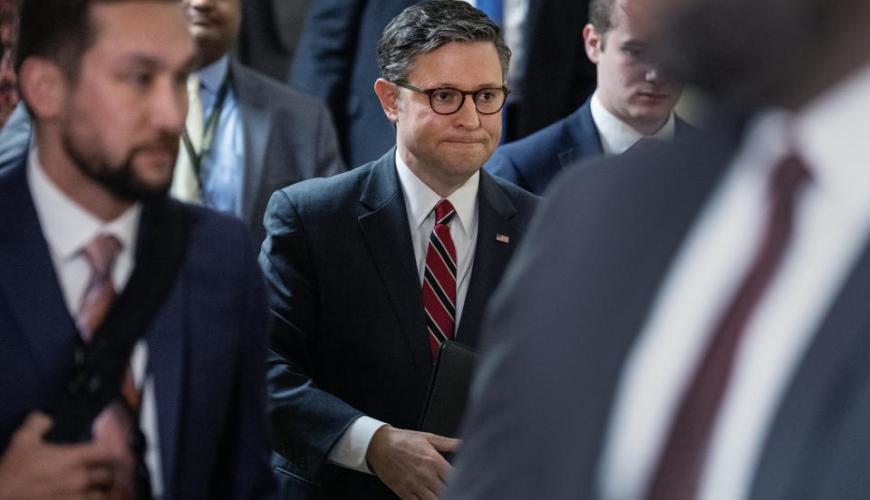Potential Government Shutdown in March as House Lawmakers Break for Recess
- 16 February 2024 2:01 AM

As the House lawmakers take leave for a stipulated 13-day hiatus, it becomes clear that barely a handful of days remain for them to prevent a possible government shutdown upon their return. Meanwhile, the imminent shutdown does not seem to be a major concern for either Washington or Wall Street.
Greg Valliere, Chief US Policy strategist at AGF Investments pointed out to Yahoo Finance the lack of attention the media and the markets are paying to this impending issue. However, the narrative could shift towards the end of the month, spoiling for a partial shutdown by midnight of March 1, followed by a complete one a week later, if no agreement is reached.
House Speaker Mike Johnson has been invested in preventing the shutdown, without having proposed a comprehensive plan or marked substantial progress towards government funding. During a recent press conference, where Johnson and other GOP leaders were in the spotlight primarily focusing on immigration and President Joe Biden's mental sharpness, the topic of the looming shutdown remained untouched.
Despite multiple inquiries, Johnson did not address the impending shutdown and the subsequent steps needed to be taken towards completing the spending bills. No progress was made this past Thursday, as the lawmakers concluded their voting around uncorrelated issues such as US energy production and China, before taking off for the airports.
If Congress engages yet again in brinkmanship, it could lead to significant economic repercussions. Any political stalemate would only serve to further tarnish the US creditworthiness, which is already in a poor light due to recurrent political dysfunction.
Doug Holtz-Eakin, president of the American Action Forum, voiced similar apprehensions on Yahoo Finance about potential further downgrades. In addition to this, direct economic impacts may also bear down on the economy if a deal is not brokered and the government shutdown takes place. As per a Congressional Budget Office study, the longest government shutdown resulted in a permanent loss of about $3 billion from the US economy.
As the lawmakers head towards recess, they leave behind a myriad of complex issues which could influence the forthcoming spending negotiations. A bill provisioned at $95 billion to aid Ukraine, Israel, and the Indo-Pacific recently saw clearance from the Democratic-led Senate. Johnson, however, has shown no support towards the bill and yet needs to elaborate on a comprehensive plan of action.
Taxpayers will remain watchful in the coming weeks as the Senate deliberates on a bipartisan tax deal that has currently hit a roadblock. This resulting uncertainty has already caused complications in the ongoing tax filing season.
The likely scenarios in the coming weeks could see another temporizing extension to stall for more time for government funding. Greg Valliere mentions that the chances of yet another shutdown could further tarnish Johnson and his team's already dysfunctional image.
A long-term solution entails a Congressional agreement on the 12 annual budget appropriations bills to fund the government for the entire fiscal year. Despite the stated progress on this front, the Senate remains in recess until Feb. 26, casting uncertainties about timely passage of the spending bills to prevent a shutdown.
Once the lawmakers reconvene, anticipated Republican opposition in the House could complicate matters further. If detailed talks are initiated in the coming weeks, a considerable faction of conservative House Republicans are expected to oppose any deal, necessitating Johnson to get Democrats on board, thereby raising the political stakes in view of the upcoming March 1 deadline.
